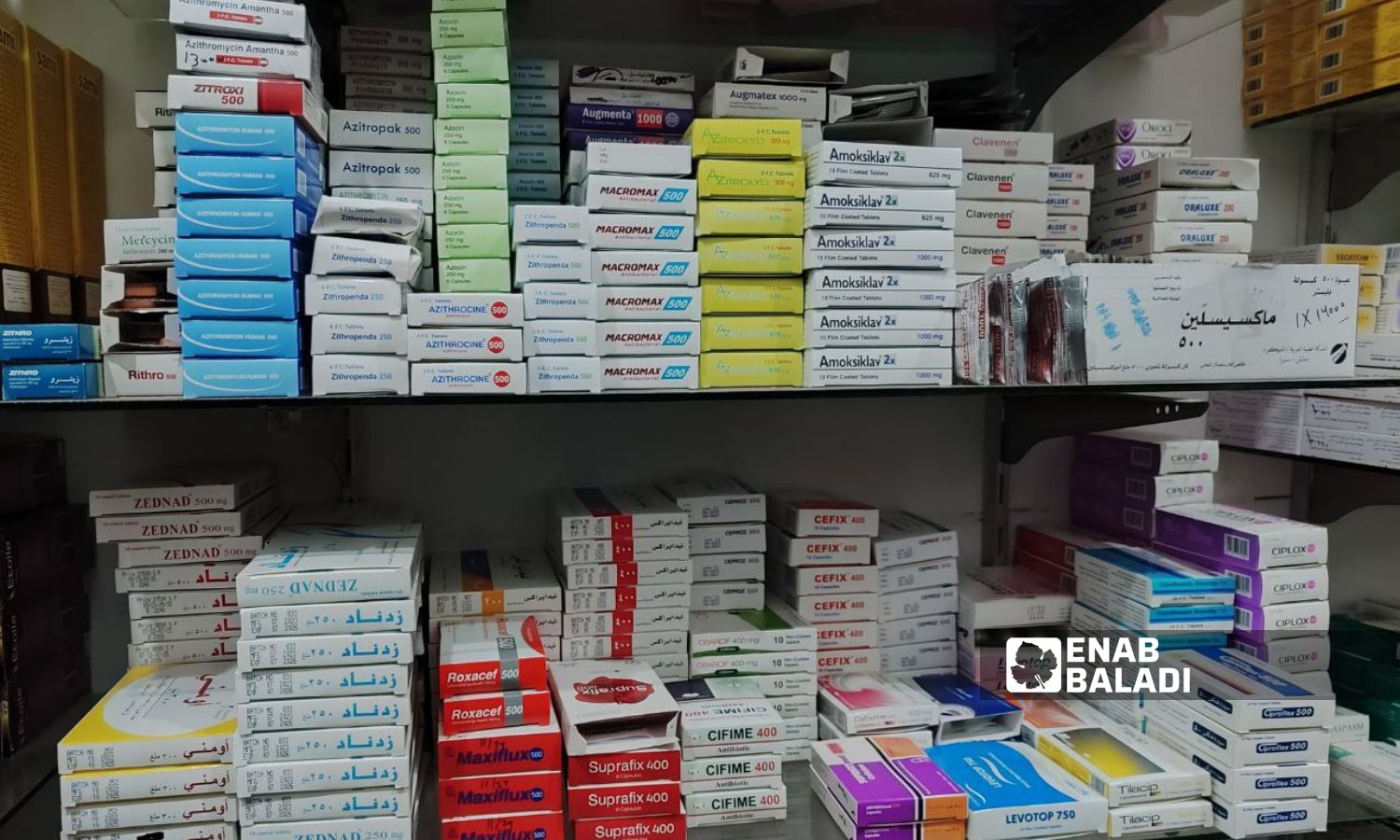



Latakia – Linda Ali
Afaf, a 33-year-old woman, resorted to selling a piece of gold jewelry to cover the cost of her young child’s treatment, who has been suffering from a persistent flu since the beginning of winter, which developed into a chronic inflammation with troubling symptoms.
The woman, who works at a governmental institution in Latakia province, said that the treatment journey cost her about 225,000 Syrian pounds, including a doctor’s visit for 35,000 pounds and the price of medicine, with the least expensive box costing about 13,500 pounds for pain relief, and an antibiotic box at 34,000, requiring two of those, and vitamins for 25,000 pounds, in addition to 45,000 pounds for a bronchodilator, of which she also needed two boxes.
The woman found no solution but to sell the small piece of gold, a gift from her family when her child was born seven years ago, as in addition to treatment, the child needed a certain kind of food, adding, “The medicine price hikes are killing us, is it reasonable to pay 225,000 to get treated from flu? I spent my entire salary just to treat my son, how can we eat and drink for the rest of the month? My husband’s salary is not enough for us.”
The minimum government salaries reached about 186,000 Syrian pounds (approximately 12.5 US dollars), after a 100% increase in mid-August, whereas medicine prices witnessed three increases during the year 2023, ranging between 70 and 100%.
Yasser, a 43-year-old taxi driver in Latakia, saw his child at the beginning of the year suffering from severe colic accompanied by diarrhea and vomiting. The father suspected it was just a cold, so he decided to save on doctor’s fees and consulted a pharmacist about the symptoms, who prescribed two types of medicine, an antispasmodic and an antiemetic that cost a total of 43,000 pounds.
In addition to the cost of medicines, the young child had to follow a diet including yogurt, boiled potatoes, and bananas, which cost the father 35,000 pounds for a kilogram of each type.
Yasser said that he never imagined paying more than 75,000 pounds for treating a simple cold, and added, “God help us, we the poor, we die silently and nobody hears about us.”
The cost of treatment is scorching patients due to the continuous increase in medicine prices, the most recent of which was in December 2023, and no matter how minor the illness is, its medicine bill seems big for the majority, due to the deterioration of the purchasing power of most Syrians.
Tawfiq, a 52-year-old government employee living in Jableh city, endured excruciating pain in his flank for several months and ultimately had to see a doctor due to the unrelenting pain, who informed him that he was suffering from an early prostate enlargement with a slight calcification and advised him to start treatment immediately before the condition worsened.
The doctor set up a one-month treatment plan for the patient before reevaluating the condition, and according to Tawfiq, he is currently in the third week of treatment, which has cost him so far 57,000 pounds for five boxes of medicine, three of Tilev, and two of Cardosyr, as well as 75,000 pounds for a doctor’s visit which included an ultrasound scan.
The fifty-something-year-old man hopes that his health problem will be cured in the coming days, not out of eagerness for health, but to be relieved from payments. He said that he would not be able to continue the treatment if he needed more medicine, as he had barely managed to secure the current costs.
The Syrian Ministry of Health increased the price of medicines for the third time during the year 2023, the most recent of which was in December of the same year, with rates ranging between 70 and 100%, according to what was mentioned by the head of pharmacists in Damascus, Hassan Dirowan, to Tishreen government newspaper.
Dirowan said at the time that the prices of pills, capsules, and syrups increased by 70%, while ointments, creams, and bronchial sprays went up by 100%.
Like other files, the regime’s government in Syria failed to manage the medicines file, and the Ministry of Health remained at the mercy of pharmaceutical factories and companies, which resort to cutting their products from the markets and stopping their production and distribution each time their request to raise drug prices is rejected, until the Ministry of Health bows to their demands, in a phenomenon that has been repeated several times before.
Purchasing medicine has become limited to the rich and well-off, while the poor have no choice but to endure their pain without the effectiveness of the regime government’s promises to provide them with a dose of medicine for their ailments.
if you think the article contain wrong information or you have additional details Send Correction